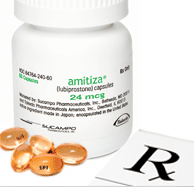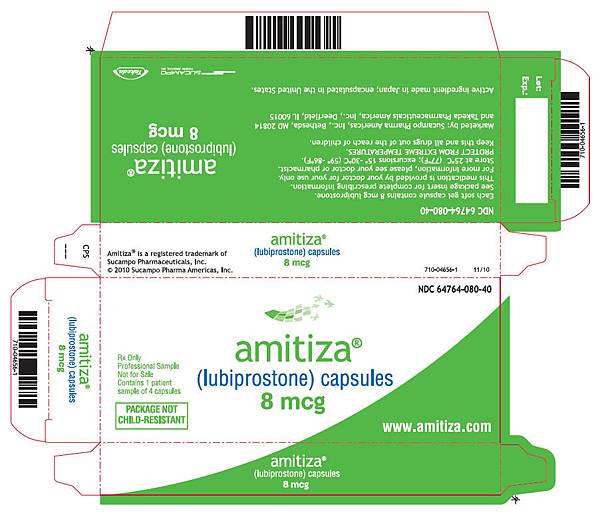

FD核准Amitiza用來治療鴉片類引起的便秘
The US Food and Drug Administration (FDA) has approved lubiprostone (Amitiza, Sucampo Pharmaceuticals Inc/Takeda Pharmaceuticals USA Inc), the first oral treatment for opioid-induced constipation in adults with chronic noncancer pain.

This was a Supplemental New Drug Application that received a priority review. This is the third indication for this drug, which is already approved in the United States for the treatment of chronic idiopathic constipation in adults, also at a dose of 24 μg twice daily, and irritable bowel syndrome with constipation in women 18 years of age and older, at a dose of 8 μg twice daily.
Approval was based on results from 12-week phase 3 studies in patients taking opioids, including morphine, oxycodone, and fentanyl, for chronic noncancer pain, and a long-term open-label safety study, a release from the companies notes. Two of the phase 3 studies met the overall efficacy endpoint, although a third study did not, they add.
The effectiveness of this drug in patients taking diphenylheptane opioids, such as methadone, hasn't been established, the release points out, and concomitant use of these opioids may interfere with its effectiveness.
Opioid-induced constipation is a common adverse effect of long-term opioid use because the binding of opioids to peripheral opioid receptors in the gastrointestinal (GI) tract results in absorption of electrolytes, such as chloride, with a subsequent reduction in small intestinal fluid. Activation of enteric opioid receptors also results in abnormal GI motility. Constipation occurs commonly in patients receiving opioids and can be severe enough to cause discontinuation of therapy.
Lubiprostone is a specific activator of CIC-2 chloride channels in the intestinal epithelium and bypasses the antisecretory action of opiates by activation of apical CIC-2 channels.
The company release includes the following information on safety of lubiprostone:
-
Lubiprostone is contraindicated in patients known or suspected to have GI obstruction. Patients with symptoms of obstruction should be thoroughly evaluated to confirm the absence of obstruction before starting treatment.
-
Patients may experience nausea during treatment that may be reduced by taking the drug with food; patients experiencing nausea should inform their healthcare provider, the statement notes.
-
The drug should not be prescribed for patients with diarrhea; patients should be informed that diarrhea may occur and should discontinue treatment and inform their healthcare provider if this occurs.
-
Some patients have dyspnea with an hour of the first dose, which generally resolves within 3 hours but may recur with repeat dosing. Patients should again inform their healthcare professional; some patients have discontinued treatment because of this.
-
In clinical trials in 1113 patients with chronic idiopathic constipation vs 316 receiving placebo, the most common adverse reactions more common with treatment were nausea, diarrhea, headache, abdominal pain, abdominal distention, and flatulence.
-
In clinical trials in 860 patients with opioid-induced constipation vs 632 receiving placebo, the most common adverse events were nausea and diarrhea.
-
The safety of lubiprostone in pregnancy has not been evaluated in humans, but on the basis of animal data, the agent may cause fetal harm. It should be used during pregnancy "only if the potential benefit justifies the potential risk to the fetus," the company release notes. Nursing women should use it with caution and monitor infants for diarrhea.
-
The dosage should be reduced in patients with moderate and severe hepatic impairment.






 留言列表
留言列表
 線上藥物查詢
線上藥物查詢 